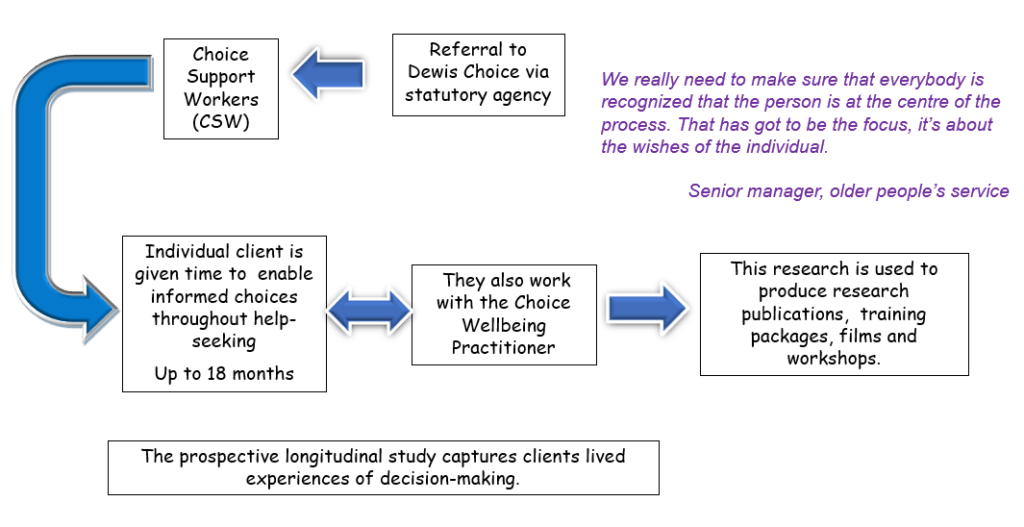
What is the dewis choice initiative?
The service focusses on providing client-led informed choice during all stages of the help-seeking and justice-seeking journey, during crisis incidents, safety planning and recovery. We prioritise a co-ordinated community response and our service is embedded into safeguarding structures within the communities we work in within Wales. We provide intensive support for people aged 60 years and over, including those who identify as LGBTQ+, and those living with dementia. We aim to also to support family members and families of choice, where it is safe to do so. When appropriate we will work with harmers or alleged perpetrators.


